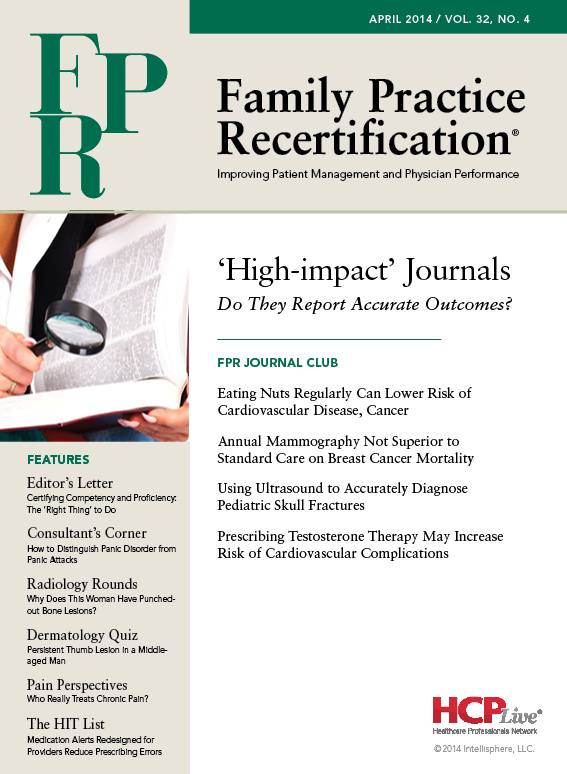Medication Alerts Redesigned for Providers Reduce Prescribing Errors
Redesigning medication alerts with healthcare providers in mind would reduce prescribing errors and increase the efficiency of electronic medical records.

Redesigning medication alerts with healthcare providers in mind would reduce prescribing errors and increase the efficiency of electronic medical records (EMRs), according to a study published online March 25, 2014, in the Journal of the American Medical Informatics Association.
For their simulation study, Alissa L. Russ, PhD, a research scientist at the Richard L. Roudebush Veterans Affairs (VA) Medical Center in Indianapolis, IN, and her team of US investigators applied human factors engineering principals to existing electronic medication alerts, including drug safety, allergy, and interaction warnings.
According to the authors, such changes comprised the “use of concise language and a table-like format to help providers scan for information quickly,” although some of the redesigned alerts also “presented more detail, such as a patient’s previous symptoms and lab results, so providers did not have to search for this information elsewhere in the patient's EMR.”
To compare the new interface to original alerts on matters of usability, perceived workload, and prescribing errors, the researchers utilized a counterbalanced, crossover study design with 20 VA prescribers, none of whom received any training on the design changes.
Despite their lack of training on the altered display, the prescribers “were able to resolve redesigned alerts more efficiently compared to the original alerts,” and they “rated redesigned alerts significantly higher than original alerts across several dimensions of satisfaction,” the study authors wrote.
In addition, the new alert interface “led to a modest but significant reduction in workload and significantly reduced the number of prescribing errors per prescriber,” which the researchers attributed to “design modifications that reduced usability-related errors, provid(ed) clinical data closer to the point of decision, and display(ed) alert text in a tabular format.”
In light of those findings, Russ stated in a press release “these types of design changes can help providers pay attention to alerts and may reduce some aspects of alert fatigue.” However, Russ noted the study participants “sometimes inadvertently canceled a medication when they thought they were ordering it — or, vice versa, unintentionally ordered a drug — depending on the alert design,” a finding she said had not been previously reported for EMR medication alerts.
“Serious gaps remain in understanding how to effectively display medication alert information to prescribers. In our study, prescribing errors significantly declined with the redesign, but the number of these errors remains too high,” Russ said in the release. “Our next step … is to learn more about the decision-making process that providers go through when they encounter medication alerts, (because) an improved understanding of this process will enable us to design even better alerts, with the end goal of enhancing patient safety.”
In the meantime, the authors concluded “good alert design may offer better cognitive support during busy patient encounters and may help providers extract information quickly, while a poor design may cause prescribers to prematurely dismiss alerts.”
Their present work was funded by a VA Health Services Research and Development (HSR&D) grant and conducted in the VA HSR&D Human-Computer Interaction and Simulation Laboratory in Indianapolis.
